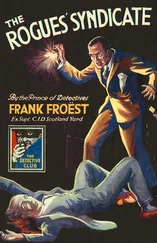Rambo's articulated arms started to shift the debris. At first it seemed that the robot might succeed. It lifted the rocks one by one until it came to a sharp splinter of lava that had bored its way into the sediment and was sticking out diagonally, pressing the tube against a ledge. Its arms extended and contracted, twisting and trying to dislodge the splinter.
'It's not a job for a robot,' said Bohrmann. 'They can't generate momentum.'
'Great!' spat Frost.
'What if the operator were to reel in the tube?' suggested Bohrmann. 'That's bound to create enough tension to free it.'
Van Maarten shook his head. 'It's too risky. The tube might tear.'
They kept trying for a while, getting the robot to ram the rock from every possible angle, until eventually it was obvious that Rambo couldn't help. And in the meantime, worms were invading the surface that had been cleared, swarming out of the darkness from all directions.
'I don't like the look of this,' said Bohrmann. 'Especially not here, where the rock's so unstable.'
Frost frowned. 'I'll do it.'
Bohrmann looked at him questioning.
'I'll take a dive.' Frost shrugged. 'If Rambo can't do it, only we can. It's four hundred metres. The pressure suits can handle that.'
'You want to go down there?' Bohrmann said.
'Sure.' Frost stretched his arms until they clicked. 'Is there a problem?'
Independence, Greenland Sea
The yrr's reply prompted Crowe to send a second, infinitely more complex message into the depths. It contained information about the human race, its evolution and culture. At first Vanderbilt wasn't too happy about this, but Crowe persuaded him they had nothing to lose. The yrr were on the brink of victory. 'Our only chance,' she said, 'is to convince them that we deserve to live. And the only way we can do that is by telling them about us. Maybe there'll be something they haven't already taken into account. Something that will make them reconsider.'
'Shared values,' said Li.
'Or just the tiniest overlap.'
Oliviera, Johanson and Rubin had shut themselves into the lab to get the blob of jelly to dissociate. They kept in constant communication with Weaver and Anawak. Weaver had endowed her virtual yrr with electronic DNA and pheromones. It seemed to work. On a theoretical level they'd demonstrated that the aggregation of single-cell organisms relied on a pheromone, but in practice the jelly was disinclined to prove it. The being, or collection of beings, had turned into a flat sort of pancake and sunk to the bottom of the chamber.
On 02 level, Delaware and Greywolf were busy monitoring the footage from the dolphins' cameras, but there was nothing to be seen on the screens apart from the Independence's hull, a few fish, and the mammal fleet – dolphins filming each other. When they weren't in the CIC, they were down on the well deck, where Roscovitz and Browning were still hard at work, repairing the Deepflight.
Li was aware that even the best minds could seize up or get stuck in a rut if they weren't distracted from their work. She asked for the latest data on the weather forecast and double-checked its reliability. There was every indication that low winds and smooth seas would prevail until the next day. The water was noticeably calmer than it had been that morning.
With that knowledge, she summoned Anawak for a chat, and discovered to her astonishment that he knew next to nothing about Arctic cuisine. The responsibility was delegated to Peak, who, for the first time in his military career, found himself in charge of catering.
He made a series of phone calls and two helicopters set out for Greenland late that afternoon, Li announced that the head chef had invited them all to a party at nine o'clock that evening. The helicopters returned, bearing all the ingredients for a Greenland feast. Tables, chairs and a buffet were set up on the flight deck next to the island. A stereo system was carried outside and heaters were positioned around the perimeter to keep out the cold.
The bustle in the kitchens became a whirlwind of activity. Pots and pans were filled with caribou; seal stock was converted into soup; maktaaq – narwhal skin – was cut into strips, and eider-duck eggs put on to boil. The Independence's baker turned his hand to bannock, a tasty variety of flat bread, whose preparation was at the centre of numerous annual baking competitions. Arctic char and salmon were filleted and fried with herbs; frozen walrus became carpaccio; and mounds of rice were poured into water. Peak, who knew nothing about cooking, had trusted the advice of locals. Only one regional delicacy had failed to make the cut. No matter how much anyone extolled the virtues of raw walrus gut, Peak had decided it was one experience he was prepared to forgo.
He'd arranged for a skeleton crew to man the bridge, the engine room and the CIC, so at nine o'clock sharp almost everyone made their way to the deck – sailors, scientists and military – claimed their welcome drink, an alcohol-free cocktail, and waited for the buffet to open. Soon scientists were talking to soldiers, soldiers to sailors and sailors to scientists.
It was a strange party that Li had arranged, with the steel tower of the island behind them and the lonely expanse of the sea all around. In the distance they could see surreal peaks of retreating mist, and the red ball of the sun low on the horizon. The clean air felt invigoratingly cold, and a deep blue sky stretched high above.
At first everyone discussed anything other than the circumstances that had brought them together – but there was something awkward, almost desperate, about their determination to stick to polite conversation. As midnight approached, and dusk descended, they were on first-name terms and gathered in groups around the experts, seeking comfort where there was none to be found.
'Seriously, though,' said Buchanan, shortly after one o'clock, 'you can't tell me you really believe all that stuff about intelligent amoebas.'
'Why not?' said Crowe.
'We're talking about real intelligence, right?'
'I should think so.'
'Well…' Buchanan fumbled for the right words '. . . I'm not saying that all intelligent beings should look like us, but you'd think they'd be more complex than amoebas. Chimps are supposed to be intelligent, aren't they? Whales and dolphins too. They're all creatures with complex bodies and big brains. Ants are too small to be truly intelligent – you said so yourself- so how's it supposed to work for amoebas?'
'Are you sure you're not confusing two different issues?'
'What.'
'The truth, and what you'd like the truth to be.'
'What do you mean?'
'She means,' said Peak, 'that we'd prefer our enemy to be powerful and strong. In other words, if we have to concede defeat to anyone, we'd rather it was to a race of tall, good-looking creatures.'
Buchanan slammed his hand on the table. 'Well, I don't buy it. Primitive organisms aren't supposed to rule the planet. There's no way that an amoeba can be as intelligent as man. No way. Humans mean progress, they-'
'Progress?' Crowe shook her head. 'What do you mean by progress? Is evolution progress?'
Buchanan looked hunted.
'Let's see, then,' said Crowe. 'Evolution is the struggle for existence, as Darwin called it. The survival of the fittest. Whichever way you look at it, it means triumph in the face of adversity – either by succeeding over other organisms or by surviving natural disasters. Natural selection allows organisms to adapt. But does that necessarily mean organisms become more complex? And is complexity progress?'
'Evolution isn't my field,' said Peak, 'but the way I see it, most creatures have been getting bigger and more complex throughout the course of time. Humans are the perfect example. Organisms increase in size and complexity. In my book, that makes it a trend.'
Читать дальше












